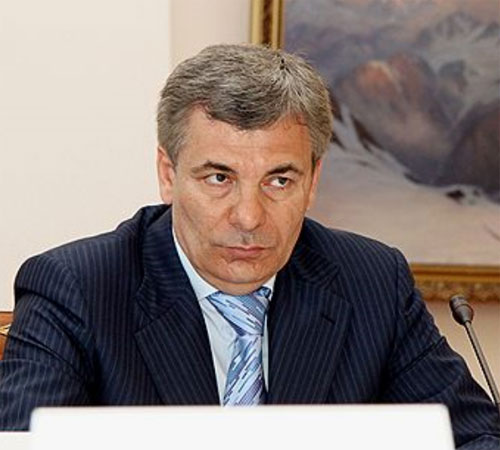
Wars for the Past Appear to Be Increasing in the North Caucasus
Publication: Eurasia Daily Monitor Volume: 9 Issue: 154
By:

The Council of the Russian People organization attacked Circassian historians and activists in its online publication on June 26. The anonymous article alleged that Circassian activists and public figures harbor separatist and anti-Russian sentiments, and that the regional government supports these aspirations. According to the author, Circassian historians have promoted the idea of Greater Circassia, which contributed to the destabilization of the situation in Kabardino-Balkaria because the historians have fostered the “Kabardin [a.k.a. Circassian] youth’s hatred of Russia” (https://srn.su/?p=4487).
The study of history in general was highly distorted in the Soviet Union because science, especially social science, was under the heavy influence of communist ideology. So the officially approved and universally implemented description of the historical process was forced into a narrowly-defined and linear process of social progress explained by class warfare. In a multiethnic country like the former USSR, an additional layer of imperial mythology was created and vigorously implemented to soothe ethnic tensions and rivalries. Many of the communist-era ideological constructs in history became obsolete in post-Soviet Russia. However, since ethnic issues never faded away in the multiethnic Russian Federation, the imperial constructs in regard to Russia’s conquests stayed on. For example, although Russian historians recognize the reality of the Russian-Caucasian War of the 19th century, they still defend the concept of the “voluntary accession” of Ingushetia, North Ossetia and Circassia into the Russian Empire. The conquest of the Caucasus by Russia is presented as a largely positive development for the putatively underdeveloped North Caucasian peoples, while the fact that some indigenous populations, such as the Circassians, were entirely effaced from most of their lands and hurriedly replaced by ethnic Russians is omitted.
Contemporary Russian historiography largely relies on the old clichés and myths about the civilizing Russian influence on the North Caucasus and the progressive multiculturalist policy of the communists. But North Caucasian historians set out to explore formerly forbidden topics as soon as the restrictions were lifted. So views promoted by Moscow clash with the regional historians’ views. The anonymous writer from the Council of Russian People pointed to the parliament and president of Kabardino-Balkaria, which supported the publication of a 614-page textbook on the history of Kabarda and Balkaria. The author cited apparently the most egregious excerpts from the book, such as: “For centuries Russia seized the land of the highlanders, created Russian and Ukrainian settlements on their land, built military fortresses and strongholds. By the 1760s, Russia proceeded to open hostilities against the peoples of the North Caucasus and embarked on this war” (https://srn.su/?p=4487).
Moscow is by no means the weakest side in these contemporary wars for the past in the North Caucasus. In September 2007, all three republics with a Circassian population – Kabardino-Balkaria, Karachaevo-Cherkessia and Adygea – were forced (and paid well) to celebrate 450 years since “voluntary accession” into Russia (https://www.rg.ru/2006/09/12/vlast-prezident.html, https://archivesjournal.ru/?p=235). The claim about the so-called voluntary accession of the Circassians into Russia in the 16th century is so absurd that even Moscow’s loyalists in the region could not support it. The head of Kabardino-Balkaria, Arsen Kanokov, reportedly said in public that the event was not about “voluntary accession,” but rather about a military-political union between Russia and Kabarda. The Russian nationalist writer did not fail to label this attitude as “extremist” (https://srn.su/?p=4487).
Arsen Kanokov may have been targeted by Moscow for what the Russians probably regard as an excessively pro-Circassian nationalist stance. In June, 2012, Kanokov’s head of administration, Vladimir Zhamborov, and several other top officials in Kabardino-Balkaria were arrested on corruption charges and taken to Moscow (https://www.kavkaz-uzel.ru/articles/207921/). The selectivity of Russian justice is so well-known that few observers believe the Kabardino-Balkarian officials were arrested for the crimes they allegedly committed. Various political and economic interests are cited as having prompted Moscow to attack Kanokov by arresting his close associates.
The watchful eye of the Russian nationalists did not single out Kabardino-Balkaria. A member of the Slavic Union of North Ossetia, historian Sergei Perevalov, praising President Vladimir Putin for officially assigning the special status of “state-constituting people” to ethnic Russians during his last presidential campaign, wrote: “The idea of Russianness that was suppressed by the supremacy of the communist ideology for seventy years, encounters powerful resistance by very different political forces – ranging from liberals and internationalists to Eurasianists and ethno-nationalists” (https://rus-osetia.ru/index.php/news/avtorskaya-kolonka/1288-russkie-v-respublike-severnaya-osetiya-alaniya-1-k-itogam-perepisi-2010-goda).
At the same time, Perevalov scathingly criticized the head of North Ossetia, Taimuraz Mamsurov, for expecting the non-Ossetian population of North Ossetia to learn Ossetic. Perevalov attacked Mamsurov for considering North Ossetia “an Ossetian republic” rather than just another Russian territorial unit. Crusading for the equality of all nationalities in the Russian Federation, the Russian historian deplored the fact that the percentage of ethnic Russians in Vladikavkaz, the principal city in North Ossetia, had dropped from 67 percent in 1913 to 27 percent in 2002, while the percentage of ethnic Ossetians in the city in the same period grew from 13 percent to 60 percent (https://rus-osetia.ru/index.php/blogi/sergey-perevalov/item/56-решение-вс-россии-по-татарстану-аукнется-ли-в-северной-осетии?). Russian officials and activists periodically decry the outflow of ethnic Russians from the North Caucasus and the growth of the indigenous population. It is unclear why the public should be worried about this development, if all ethnic groups in Russia are equal.
As the war for the past in the North Caucasus grinds on, even history as distant as the 19th century becomes an important battleground, affecting contemporary political developments. Russian nationalist attacks on North Caucasian historians may signify the opening of yet another “front,” which demonstrates the increasing pressure on the region from Moscow.




